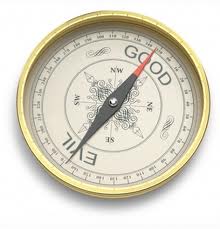Proverbs 17:16
Why should fools have a price in hand to buy wisdom,
when they have no mind to learn?

When I was growing up, we had “altar calls” often in our church. The point wasn’t necessarily to call sinners to salvation, but rather to allow the saints to reflect on their own sinfulness and to seriously repent. We don’t see altar calls as much these days. I marvel at the television teachers that are popular, the ones that promote the kind of feel-goodism that attributes our problems to psychology or dysfunction or habits or circumstances and that speaks little of sin.
The apostle Paul wrote to Timothy:
For the time is coming when people will not put up with sound doctrine, but having itching ears, they will accumulate for themselves teachers to suit their own desires, and will turn away from listening to the truth and wander away to myths. 2 Timothy 4:3-4 NRSV
The proverb asks “why should fools have a price in hand to buy wisdom when they have no mind to learn?” I wonder sometimes why we come to the Throne of God if we aren’t willing for our sin to be laid bare and for us to have to acknowledge that we are nothing without Him? You see, God is much more than our Provider. When we reduce Him to that sole role, we in fact reduce Him to some kind of galactic purchasing agent. And He is far more. He is far more in role and He is far more in character!
A. W. Tozer, in The Knowledge of the Holy, wrote:
- “The low view of God entertained almost universally among Christians is the cause of a hundred lesser evils everywhere among us. A whole new philosophy of the Christian life has resulted from this one basic error in our religious thinking” (p. vii).
Why do we go to church? Do we go out of a sense of obligation? To listen to fun music? To get our “fix” of scripture for the week? Why do we go? Church is becoming very different than it used to be, filled with sound bytes and slogans. Ask yourself what the sermon was about last week, last month, last year. How much of what you heard significantly changed your life? Do you leave feeling good or feeling convicted?
We know that the time is coming when people will not put up with sound doctrine. Do we study enough (the right kind of study) to even be able to discern sound doctrine from nonsense? Would you even know if your pastor is a sheep or a wolf?
“Beware of false prophets, who come to you in sheep’s clothing but inwardly are ravenous wolves. You will know them by their fruits.” Matthew 7:15-16a NRSV
The word translated here “fruits” is karpos. Vine’s writes:
- “of works or deeds, ‘fruit’ being the visible expression of power working inwardly and invisibly, the character of the ‘fruit’ being evidence of the character of the power producing it, Matt. 7:16. As the visible expressions of hidden lusts are the works of the flesh, so the invisible power of the Holy Spirit in those who are brought into living union with Christ (John 15:2-8, 16) produces ‘the fruit of the Spirit.'”
In other words, the thing that delineates a true prophet (or teacher) from a false one is the evidence of the fruit in their lives, not the outward fruit (such as how many people attend a preacher’s church), but the inward fruit of character! The problem today is that, with many large churches, we don’t really even know our pastors. (Do they even know more than our names about us?) Do we know if they are self-controlled, gentle, kind, generous? Do we care? When Ted Haggard was ousted from his church for sexual immorality, a group of his parishioners protested the firing, not caring whether or not he had sinned, but only that they could keep their beloved Sunday-morning-speaker! Do we care about sound doctrine at all?
We go to church with “a price in hand to buy wisdom.” The question is, are we wise enough to realize that wisdom is applied and usually painfully in our lives. Do we have minds to learn? I think that this is a question we really need to ask ourselves as believers.
